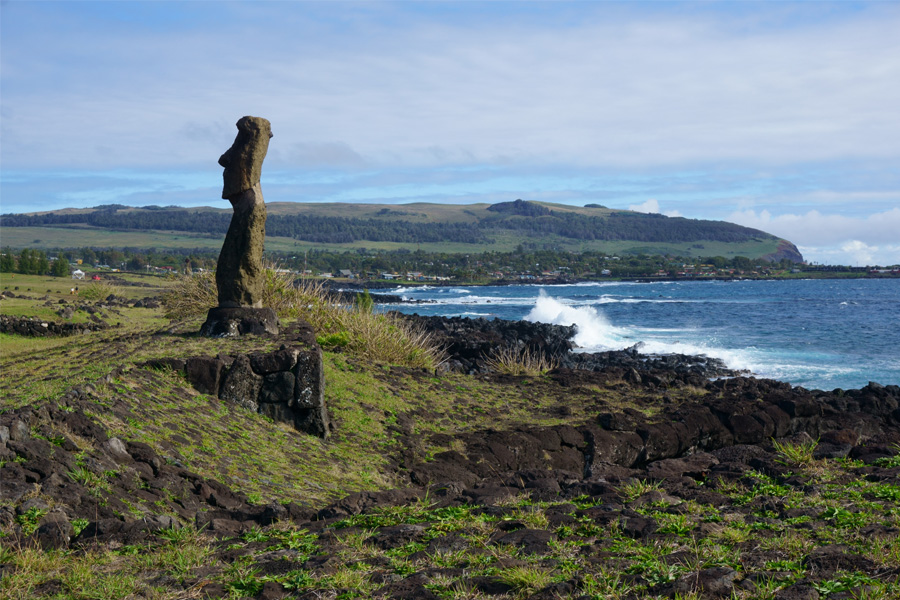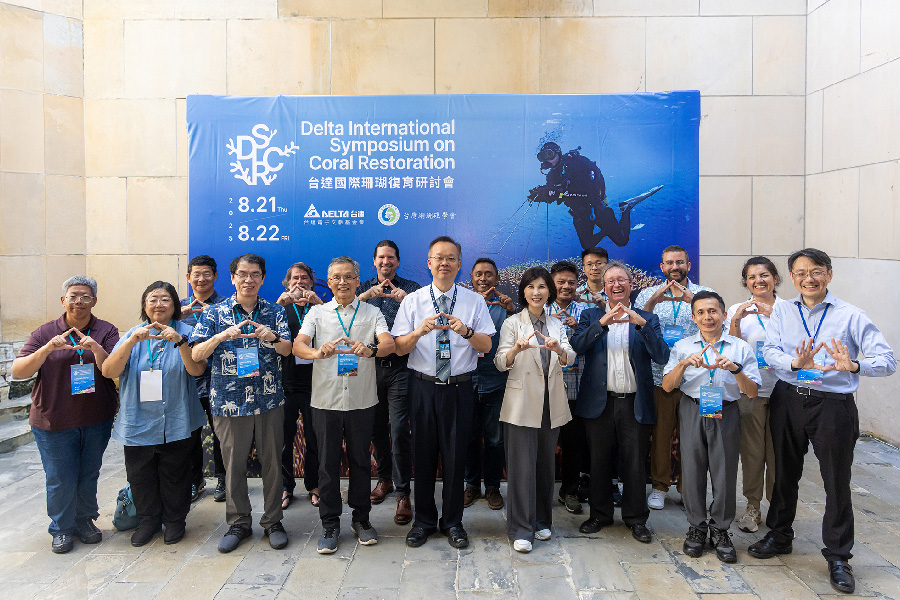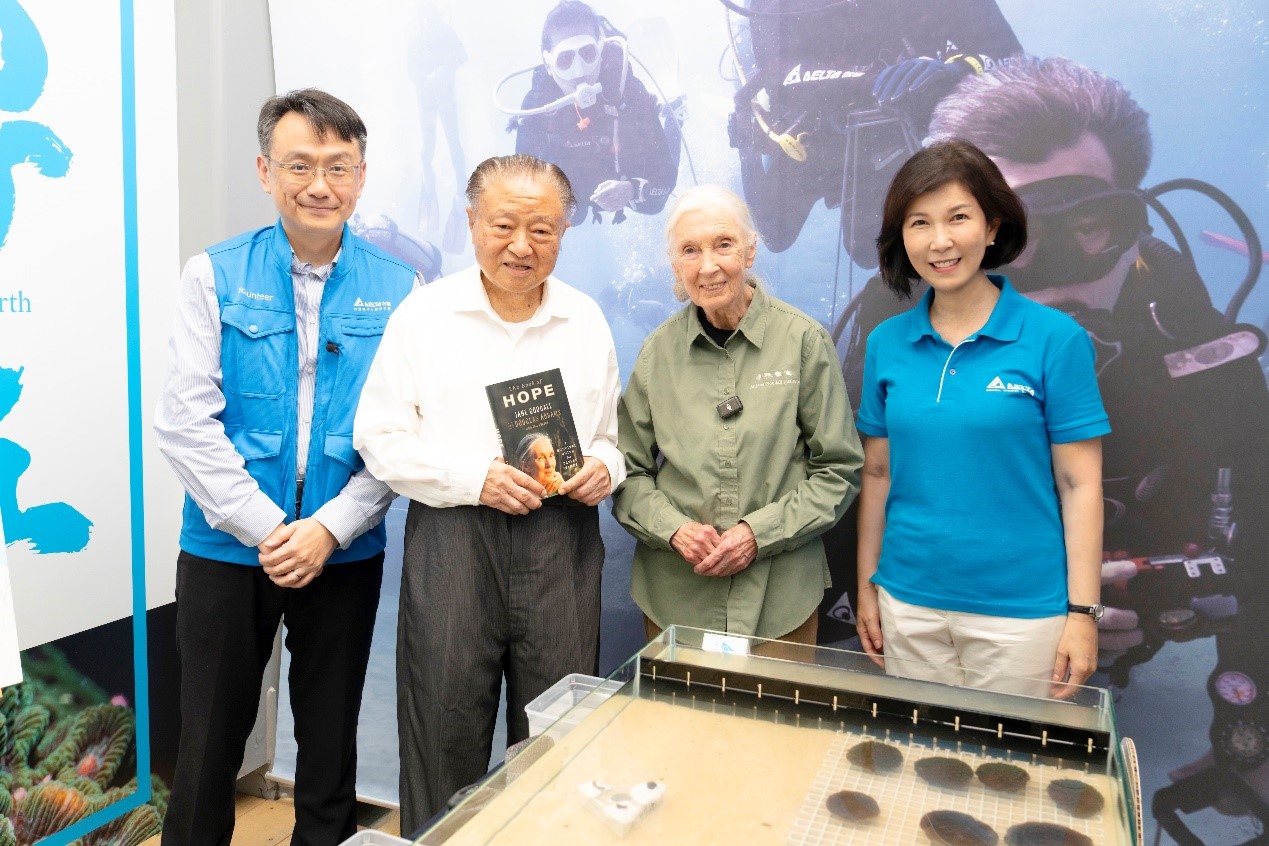In 2022, on the 30th anniversary of the adoption of the United Nations Framework Convention on Climate Change (UNFCCC), the 27th Conference of the Parties of the United Nations Framework Convention on Climate Change (COP27) hosted by Egypt was concluded with a loss and damage fund amid multiple ongoing issues of the Russo-Ukrainian War, the energy crisis, inflation, and post-pandemic recovery. Delta, which has long paid attention to climate change, has participated in the COP for the 15th consecutive time this year and hosted a side event and an Action Hub at COP27 to share Taiwan islands' power grid resilience and coral restoration achievements with the international community.
African countries guided COP27 to reach an agreement on the creation of a “loss and damage fund” 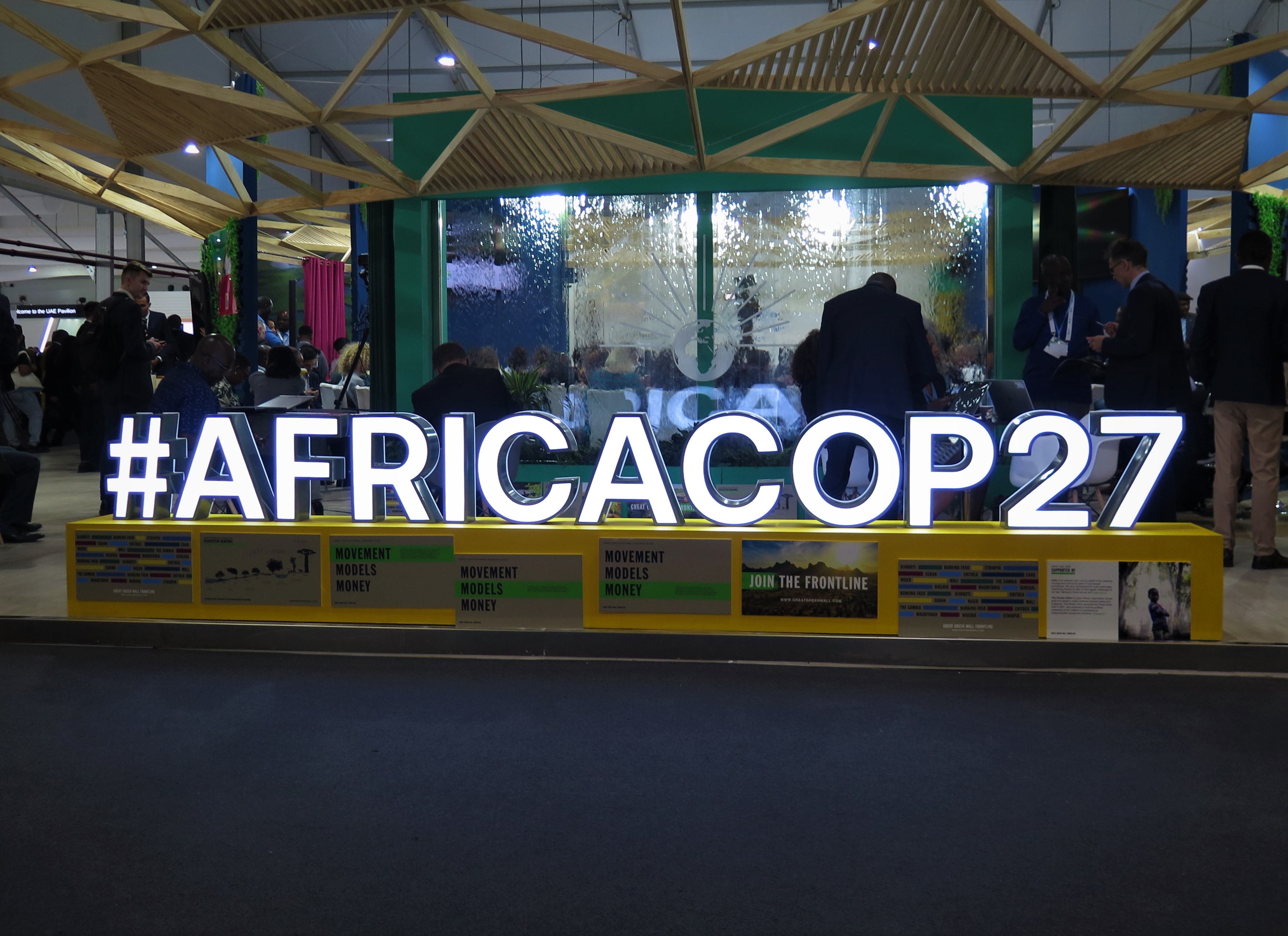 African countries guided COP27 this year.
African countries guided COP27 this year.
With beaches, coconut trees, blue sea, and clear sky, Sharm el Sheikh located next to the Red Sea, used to be a famous seaside resort. This Egyptian city attracted global attention with COP27 it hosted during the first two weeks in early November.
During the first week after the opening ceremony, the host country Egypt, brought up the “loss and damage” issue, bringing the rich countries to confront it. All parties engaged in a heated debate till the early morning of Sunday (November 20) in the second week. After another 40 hours of negotiations, they finally arrived at a consensus on a formal financial source to address this issue that has dragged on for more than 30 years.
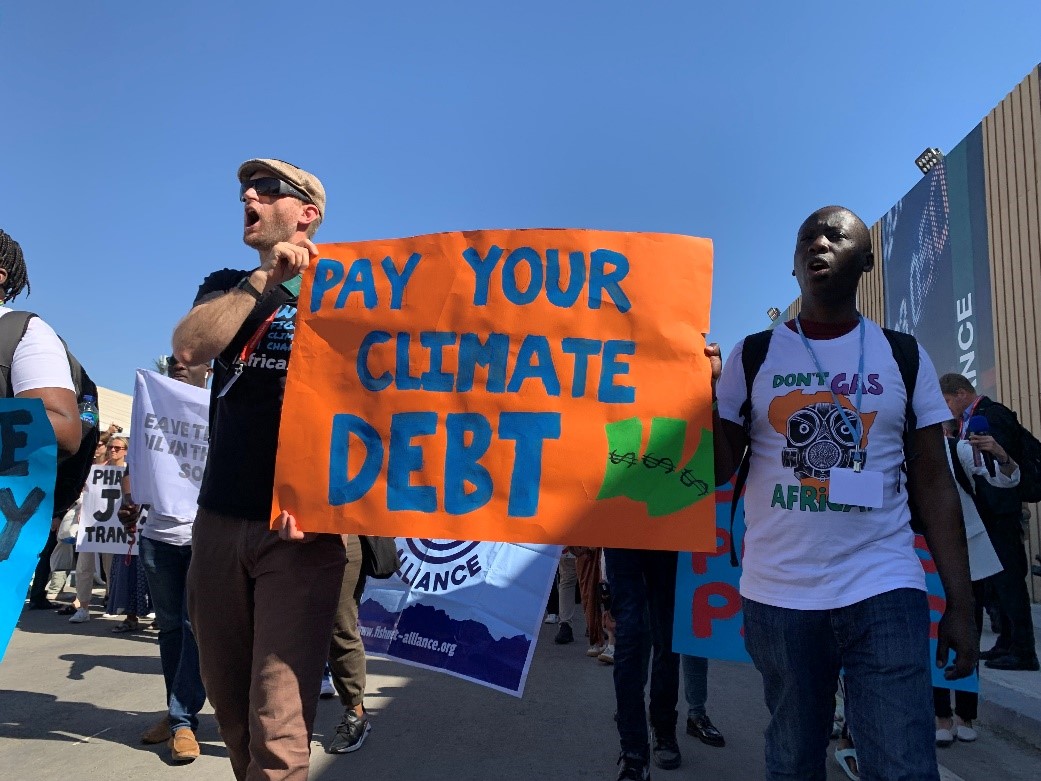
COP27 ushered in a new milestone for international climate compensation.
Industrialized countries have managed to assist vulnerable countries in mitigating climate disasters through technical support, preferential loans, and humanitarian assistance for years. The United Nations has also established financing channels, including the Adaptation Fund and the Green Climate Fund. However, all of these evaded the critical issues of liability and compensation for climate change and made it impossible to achieve climate justice that the victims were seeking. Therefore, although many details are pending confirmation and will be discussed in the coming year, many critics still regarded the loss and damage fund as the climax of COP27 and called it a rare historic achievement.
In addition, COP27 witnessed not only the largest number of developing countries' pavilions in history but the first-ever venue for climate dialogue led by children and youth, enabling the younger generation to fully express their opinions on the table. The fly in the ointment is that the marches usually held on weekends during the previous conferences were strictly controlled by the Egyptian government and could not be staged this year. Many climate advocates could only manage to organize flash mob protests as muted rallies at the venue.
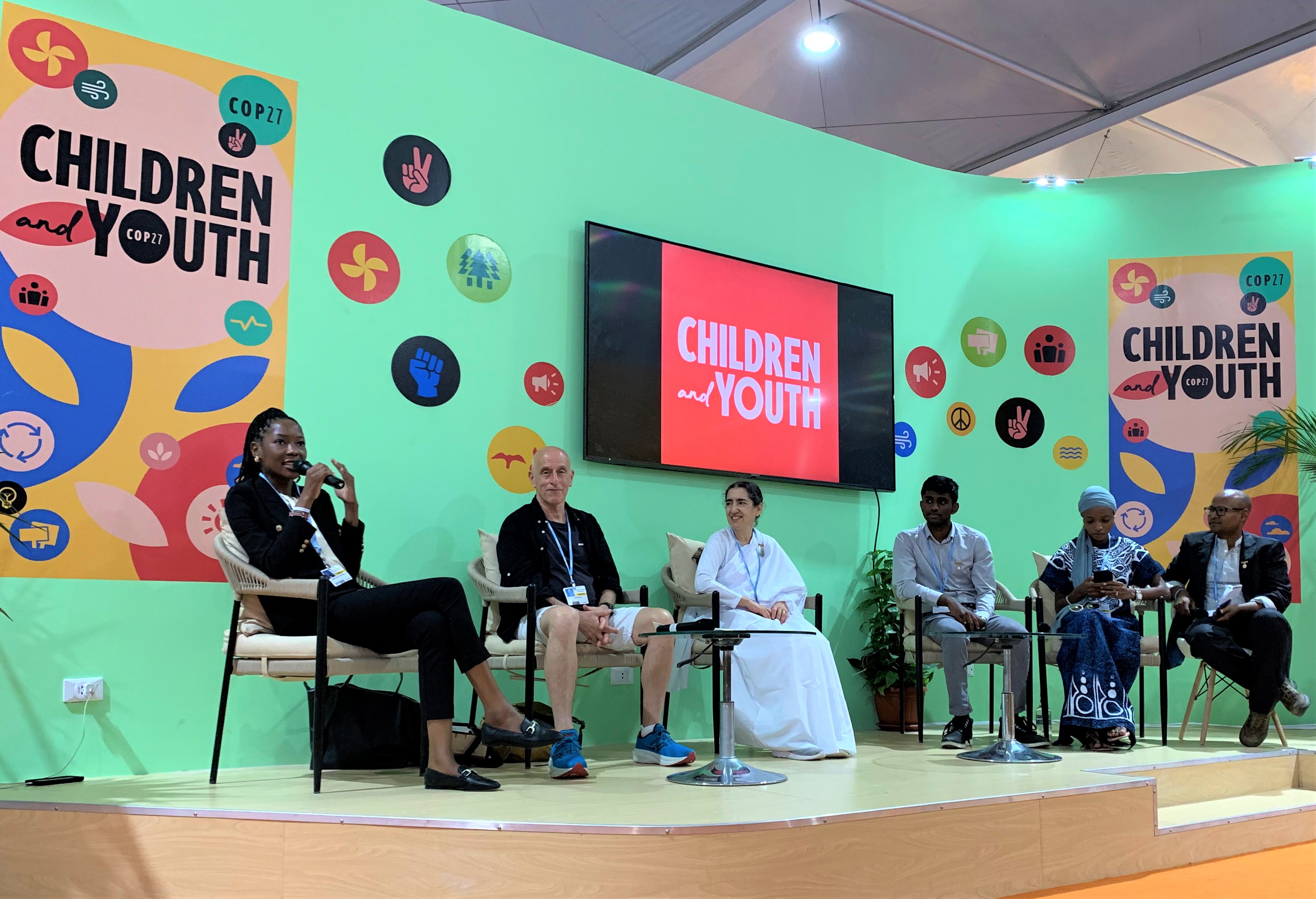 The first-ever “Children and Youth Pavilion” was launched in the Blue Zone of COP27.
The first-ever “Children and Youth Pavilion” was launched in the Blue Zone of COP27.
Energy transition, power grid resilience, and coral restoration were hot topics at COP27 Delta was the only organization from Taiwan sharing our coral restoration experience in the Action Hub and co-hosting a side event with the Spanish island governments to discuss the grid resilience challenges during the energy transition process based on our energy storage projects for two offshore islands. Both topics are closely related to the hot topics at COP27.
The above two events were scheduled on the same day in the second week (November 16) of the conference. At the events, international marine experts from the National Museum of Marine Biology and Aquarium, the Partnership for Observation of the Global Oceans (POGO), and the Environmental Justice Foundation (EJF) exchanged ideas with Delta on how to adopt scientific approaches to the professional issues of coral restoration, heat-resistant coral gene research, and blue carbon ecosystem development.
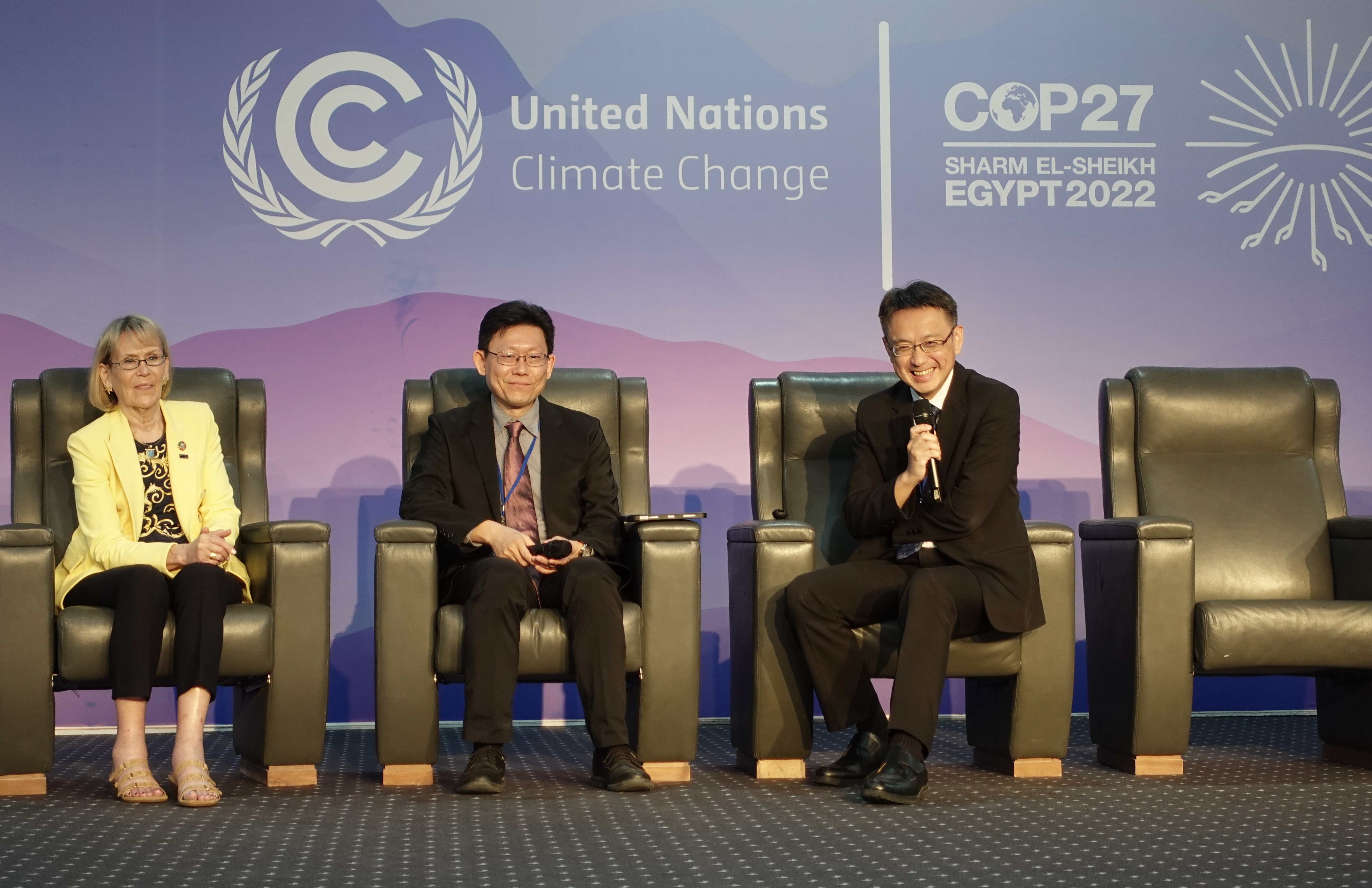 Wim Chang, CEO of the Delta Electronics Foundation(right), Te-Hao Chen, Vice Director of the National Museum of Marine Biology and Aquarium(middle) and Margaret Leinen, the POGO's representative, discussed coral restoration in the Action Hub.
Wim Chang, CEO of the Delta Electronics Foundation(right), Te-Hao Chen, Vice Director of the National Museum of Marine Biology and Aquarium(middle) and Margaret Leinen, the POGO's representative, discussed coral restoration in the Action Hub.
Delta responded to the coral restoration issues brought up by the host country Egypt by sharing our endeavors in coral restoration in the northeast corner of Taiwan with Delta’s LED equipment to facilitate the restoration process and recent collaboration with Asia University and Formosa Art Bank DAO (FAB DAO) to launch the Coral Restoration Scheme NFT. We are racing against time to enhance biodiversity before the marine environment further deteriorates.
In addition to climate and ecological issues, the energy crisis triggered by the Russo-Ukrainian War has become a hot topic at COP27. At the side event we held, entitled “Energy infrastructure, governance, regulatory framework to drive transition & resilience for island”, we discussed the issues of islands’ energy transition, technology application, and communication with local communities with the representatives of the governments of the Balearic and the Canary Islands in Spain and energy experts from RMI, a well-known U.S. think tank.
As a leader in energy-saving technologies, Delta’s energy storage solutions are able to support the energy system when a circuit breaker trips, manage overall demand to eliminate short-term demand spikes, and overcome power supply bottlenecks, while being able to be tailored to local conditions, thereby helping stabilize the power grid. At this time, we shared with the international community our practical experience in adopting the decentralized power grid and energy storage solutions to improve the power grid resilience in Kinmen Island and Orchid Island, thereby helping them adapt to climate risks. As what David Gumbs, head of Global South, RMI, stated at Delta’s side event, islands are often at the forefront of climate disasters. In the past 40 years, losses caused by natural disasters in the Caribbean have amounted to US$140 billion, which accentuates the importance of the stability of the power grid.
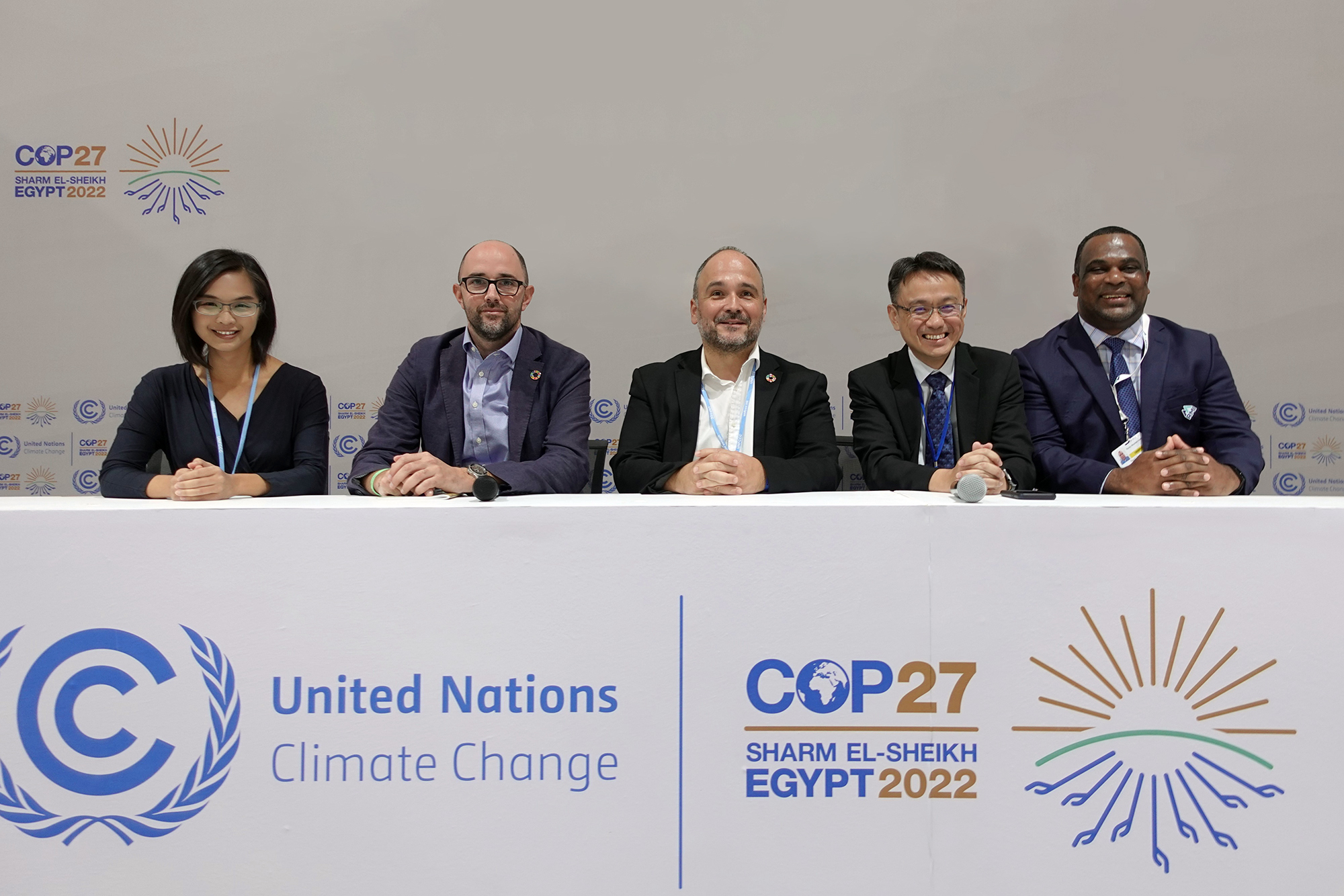 The Delta Electronics Foundation hosted an official side event and discussed energy transition with experts from the Spanish island governments and the RMI.
The Delta Electronics Foundation hosted an official side event and discussed energy transition with experts from the Spanish island governments and the RMI.
Delta was still actively participating in the COP this year and strove to increase the visibility of our carbon reduction achievements in the international community, with a view to attracting more people to pay attention to climate change.
References:
https://unfccc.int/news/cop27-reaches-breakthrough-agreement-on-new-loss-and-damage-fund-for-vulnerable-countries
https://www.delta-foundation.org.tw/blogdetail/4321












